St. Andrew’s Wesley United Church
Artists: Chor Leoni and The Leonids under the direction of Erick Lichte; Alexander Weimann, fortepiano
Chor Leoni is one of Vancouver’s most beloved ensembles. They recently created an offshoot of the ensemble – a nine-voiced professional ensemble with the best tenor, baritone, and bass voices from Canada and the US – called the Leonids. Chor Leoni, the Leonids and Alexander Weimann on EMV’s newly acquired Graf fortepiano, propose a memorable and unique Schubertiad with solos, quartets and part-songs sprinkled with piano solos from Schubert’s Moment Musicaux. Jocelyn Morlock’s stunning version of An Die Musik, one of Schubert’s most popular lied, will be part of this wonderful celebration.
This concert is generously supported by Dr. Katherine Paton.
PROGRAMME
Franz Schubert (1797–1828)
Die Nacht, Op. 17 No.4
Nachthelle D. 892
Der Gondelfahrer D. 809
Moments Musicaux No. 3
Widerspruch Op. 195 No. 1 D.865a
Der Geistertanz D. 494
Grab und Mond D. 893
Impromptu Op. 90 No. 3
An Die Musik by Jocelyn Morlock
Standchen D. 920a
Fruhlingsgesang D.740
Trinklied aus dem 16. Jahrhundert D. 847
Geist Der Liebe
TEXTS AND TRANSLATIONS
Read the texts and translations here.
Read the full programme here.
PROGRAMME NOTES
It is difficult to imagine any composer who gave as much to lower-voice (male) choral and part song repertoire as Franz Schubert. Early 19th Century Vienna, with its salon culture and fraternal organizations, was just the right place for a composer of Schubert’s melodic gifts to legitimize and enrich the genre of male ensemble singing.
Tonight, we present this music in the spirit of a Schubertiade, an informal gathering of friends sharing the music of Franz Schubert. At a Schubertiade, group sing-alongs, solo performances, small ensemble works, serious and silly music were not so much presented to the gathering, as shared from one to another. These were jovial but modest affairs for Vienna’s bohemians, artists and intelligentsia. Alexander Weimann will likely find EMV’s new Graf fortepiano a major upgrade to what Schubert himself often performed upon for these events.
While much of tonight’s music may have been performed at a Schubertiade in Schubert’s day, this evening’s repertoire was written for a variety of venues and types of ensembles. Liedertafel or “table music” was a popular form of male choral singing, often sung in beer halls, and was associated with political aspirations, nationalistic pride and the flow of alcohol. It is important to recognize that much of the beginnings of male choral music and its traditions flowed from clubs and societies which did not allow women. Present day male choirs continue to grapple with this exclusionary legacy. In addition to the salons, some of these partsongs were also written for sacred concerts and services, professionally produced concerts as well as burgeoning choral societies.
In typical male choral writing, such as barbershop, a four part texture is used with the main melody set in the second tenor or lead voice. This leaves the first tenor line to sing a higher harmony with a lighter vocalism while keeping the second tenor in a brighter and more powerful register. However, Schubert’s male partsongs and choral works are mostly set with the main melody in the highest voice, usually sitting near the top of a tenor’s range. This voicing gives many of Schubert’s part songs a distinctively delicate quality as well as a reputation for being demanding on tenor voices. It is clear that Schubert was surrounded by tenors who loved to sing high!
Tonight’s program explores the common themes of Schubert’s part songs; the evening, nature, death, love and drink.
Die Nacht, one of Schubert’s quintessential a cappella partsongs, describes the beauty of the evening. The fortepiano sets evocative scenes in Nachthelle and Gondelfahrer, respectively offering images of the lights of night and a gondola ride through a moonlit Venice. While all of this outdoor beauty may be alluring, Widerspruch humorously plays with the contrasting desires to explore nature or simply stay at home.
Turning to the grave with Der Geistertanz, we come to one of Schubert’s most remarkable part songs, Grab und Mond. Setting a text by Johann Seidl, the poet gazes into a moonlit grave, searching for light to shine forth from its darkness, ruminating on the possibility of an afterlife. The relatively short work contains seamless sinking and rising modulations as well as wide dynamic demands which mirror the desperate heart of the poet.
Tonight, old Vienna will meet modern Vancouver with two settings of the famous An Die Musik. This ode to the healing power of music, held as the highest art, has been a staple of solo singers since Schubert’s day. Vancouver composer Jocelyn Morlock has also set this work for Chor Leoni, continuing the legacy of part writing begun by Schubert. Morlock’s setting sets a prism in the light of this poem, refracting it into shimmering,undulating and healing colours.
Ständchen, one of the great works for male choir, was never supposed to be written for these forces. The ever-busy Schubert took a commission from singer Anna Froehlich as a birthday surprise for Viennese socialite Louis Gosmer. Schubert delivered to Froehlich a setting for four male voices and mezzo-soprano solo, when in fact he was commissioned to write a work for all female voices. A quick change was made for the premiere, but this original work has become a stalwart of lower voice choirs, often replacing the mezzo with a tenor or baritone solo, as we do tonight. The work paints the scene of a lover treading hesitantly to the bedroom door of their sweetheart. The fortepiano reflects the quickened pulse, nervousness and general excitement of this potential evening meeting.
- notes by Erick Lichte
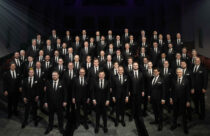
Chor Leoni
With stylistic grace and an adventurous spirit, Vancouver’s Singing Lions have enriched and transformed people’s lives through singing for almost 30 years. The choir is fortunate and privileged to sing on the unceded traditional territory of the Musqueam, Squamish and Tsleil-Waututh First Nations.
Chor Leoni has been honoured with many awards at the national and international levels including five 1st place awards in the CBC National Radio Competition for Amateur Choirs. In 2020 the ensemble received a JUNO nomination for their album When There Is Peace: An Armistice Oratorio by Zachary Wadsworth, and in 2019 received the Margaret Hillis Award for Choral Excellence from the professional choral organization, Chorus America. The award recognizes artistic excellence, contribution to the choral art form, and organizational stability over a long period of time and may only be once in an ensemble’s lifetime.
In 2018 the ensemble performed at the Singapore International Choral Festival and the Bali International Choral Festival, singing in the opening and Grand Prix concerts for both. Between the two festivals, Chor Leoni won five gold medals, two Choir Championships, and a special jury’s prize for outstanding choreography.
Chor Leoni’s 2016 recording Wandering Heart was a featured CD for Minnesota Public Radio and WFMT Chicago, and received a perfect five-star rating from the UK’s prestigious Choir and Organ magazine and was a featured CD for Minnesota Public Radio and WFMT Chicago. The choir’s 2018 Christmas recording Star of Wonder was also a featured CD on Minnesota Public Radio.
Chor Leoni prides itself on its musical ambassadorship for Vancouver and Canada and has performed at major festivals and concert venues across Canada and the United States. The choir has also shared its music in Singapore, Indonesia, Italy, Croatia, Bosnia and Herzegovina, Germany, and the Czech Republic.
Chor Leoni champions new music and has commissioned hundreds of pieces for male choir, ranging from pop and folksong arrangements to modern works. In 2021 the choir appointed Don Macdonald as its Composer-in-Residence for a three-year term. The ensemble has commissioned works by notable composers such as Melissa Dunphy, Shruthi Rajasekar, Jocelyn Morlock, Ēriks Ešenvalds, Bob Chilcott, Imant Raminsh, R. Murray Schafer, Stephen Chatman, Malcolm Forsyth, Bruce Sled, Steven Smith, and Zachary Wadsworth, among others.
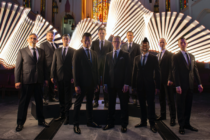
The Leonids
For 30 years, Chor Leoni has combined dedication to excellence with an ambitious focus on community engagement, all through the lens of an amateur ensemble. Chor Leoni's vision is to engage and enrich the world through the art of male choral singing.
In this spirit, Chor Leoni has created The Leonids, a professional chamber vocal ensemble under the direction of Erick Lichte. The Leonids exist to amplify Chor Leoni's values, demonstrate the highest level of excellence, and provide an unparalleled level of education and mentorship to the local Vancouver singing community. Members of The Leonids are drawn from across North America and represent the most in-demand solo and ensemble singers on the continent.
Like the legendary meteor show for which they are named, The Leonids gather in Vancouver once a year and had their debut concerts in Vancouver in May 2022. Stir magazine raved of their debut concert, "never before in Vancouver have we heard sounds like these."
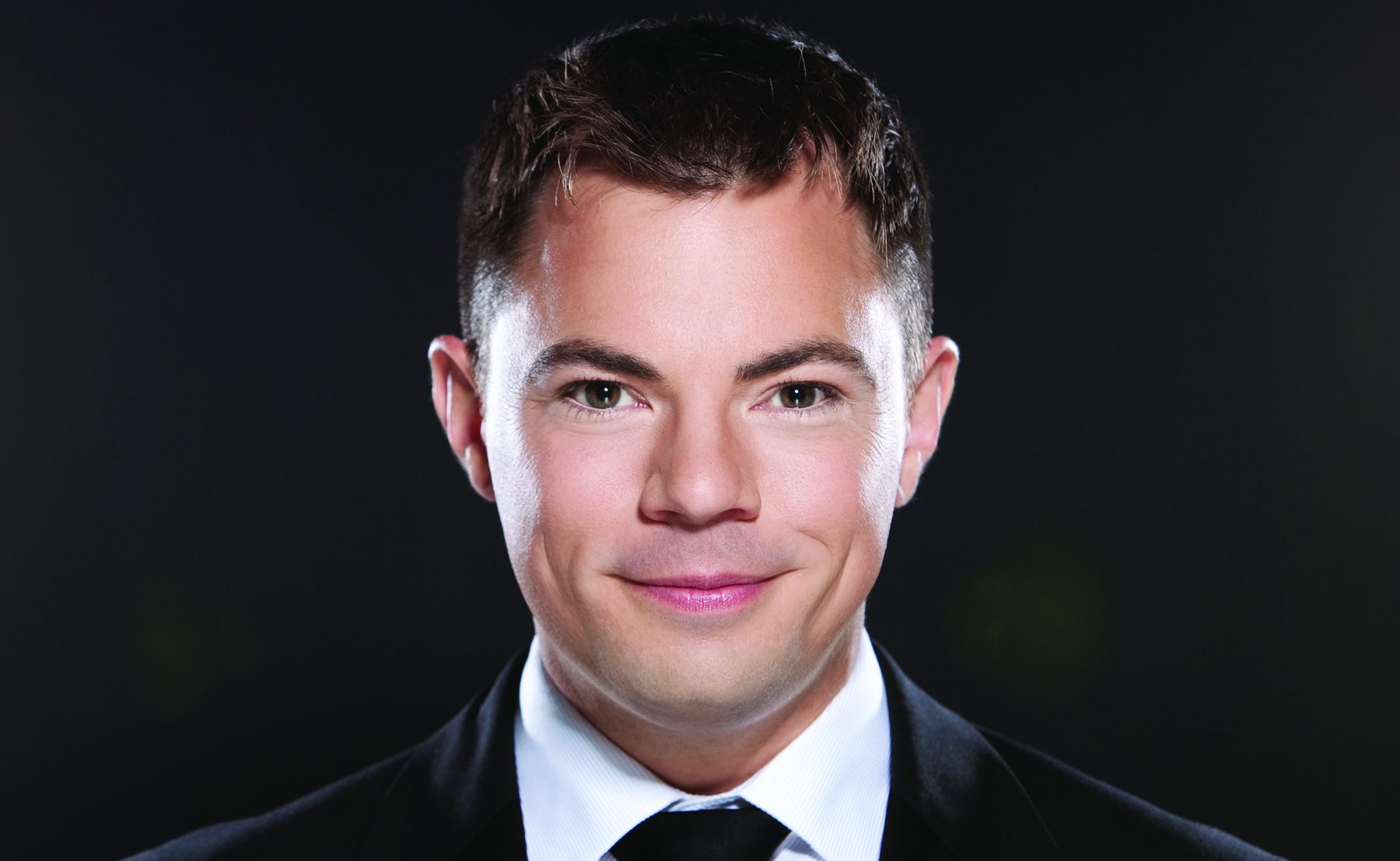
Erick Lichte, director
Erick Lichte has been hailed by Washington Post for the “audacity” of his programming and noted by the Chicago Tribune for the “meticulous preparation” of his choirs. The New York Times recently called his direction and composing “thrilling” and said of his work that the “sensation is tremendous and the musical chill effect engulfing.”
As a founding member, singer and Artistic Director of the male vocal ensemble Cantus, Lichte created and sustained one of only two full-time vocal ensembles in the United States. From 2000-2009, Lichte’s programming and artistic direction were heard in over 60 concerts a year and he has collaborated with artists such as Bobby McFerrin, the Boston Pops, The Saint Paul Chamber Orchestra, Doc Severinsen, and Minnesota Orchestra.
In January 2013, he began his tenure as Artistic Director of Vancouver, Canada’s Chor Leoni Men’s Choir. Since that time, he has grown the choir into one of the most active and popular amateur choirs in North America, performing over 35 concerts a year to over 15,000 patrons. His first recording with Chor Leoni, Wandering Heart, received a perfect five-star review from the UK’s prestigious Choir and Organ Magazine, and Oregon Arts Watch has declared that, under his leadership, Chor Leoni is now “one of the best male choirs on the continent.” In the summer of 2018, he led Chor Leoni to multiple awards and Grand Prix appearances at both the Singapore and Bali International Choral Competitions. In 2020, his world premiere recording of the When There Is Peace: an Armistice Oratorio was nominated for a JUNO Award.
His work with Cantus and Chor Leoni garnered him both the 2009 and 2019 Margaret Hillis Award for Choral Excellence, the highest honour from the professional choral organization Chorus America. He is only the second conductor to have ever won this award with two ensembles.

Tim Keeler, tenor
Tim Keeler is music director of the San Francisco-based, GRAMMY® award-winning vocal ensemble, Chanticleer. Prior to moving to San Francisco, Tim forged a career as an active conductor, singer, and educator. He has performed with New York Polyphony, The Clarion Choir, the Choir of Trinity Wall Street, and sang with Chanticleer for their 2017-2018 season. He has also performed frequently as a soloist, appearing regularly in the Bach Vespers series at Holy Trinity Lutheran Church in New York City, as well as with TENET, New York's preeminent early music ensemble.
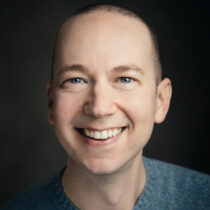
Andrew Fuchs, tenor
Tenor Andrew Fuchs’ wide-ranging repertoire includes an abundance of early music, which he has sung with such groups as Pegasus, Tenet, Artek, The Choir of Trinity Wall Street, and New York Polyphony. He recently made his Kennedy Center debut in Monteverdi’s Vespers with The Thirteen and his Lincoln Center debut in Bach’s Magnificat with the American Classical Orchestra.
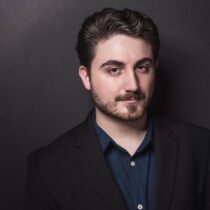
Jacob Perry Jr., tenor
Tenor Jacob Perry Jr., based in the Washington DC Metro Area, receives praise for his “gorgeous and stylish” interpretations of Renaissance and Baroque repertoire (ClevelandClassical.com). He has been featured as a soloist with Apollo’s Fire, Handel Choir of Baltimore, Mountainside Baroque, Tempesta di Mare, and The Thirteen.
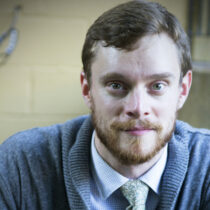
Steven Soph, tenor
A “superb vocal soloist” (The Washington Post) with “impressive clarity and colour” (The New York Times), tenor Steven Soph performs concert repertoire spanning the Renaissance to the modern-day. He regularly sings with top vocal ensembles, including Seraphic Fire, Conspirare, Roomful of Teeth, and more.
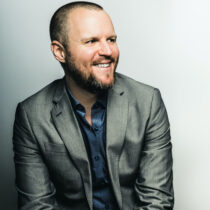
Steven Caldicott Wilson, tenor
Tenor Steven Wilson regularly appears with Handel + Haydn Boston and the Trinity Baroque Orchestra NYC and is a member of the twice GRAMMY-nominated classical a cappella vocal quartet New York Polyphony. He has performed in major venues with the Trinity Baroque Orchestra NYC as the Evangelist in Bach’s Christmas Oratorio.
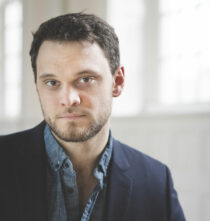
Harrison Hintzsche, baritone
“Sonorous” (Opera News) and “suave” (parterre box) baritone Harrison Hintzsche is a recitalist, concert singer, and ensemble musician who enjoys the unique challenge of interpreting a wide range of diverse repertoire. He has been praised for his warm lyric tone, musical subtlety, and dedication to text. As a sought-after ensemble musician, Hintzsche sings regularly with leading choral ensembles such as the Santa Fe Desert Chorale, True Concord Voices & Orchestra, Ensemble Altera, Yale Choral Artists, and the Oregon Bach Festival Chorus, among others.
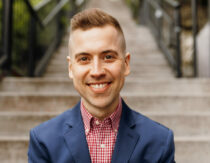
Sam Kreidenweis, baritone
Baritone Sam Kreidenweis’ stylistic versatility, rich sound, and engaging stage presence have gained him praise internationally. Sam works with the Dublin, Ireland-based Anúna, and appears across the US with ensembles such as Conspirare, Santa Fe Desert Chorale, and Vocal Arts Ensemble.
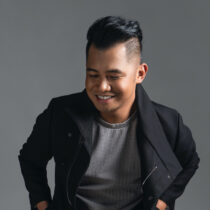
Enrico Lagasca, bass-baritone
Acclaimed to have “a beautiful sound” (The New York Times), bass-baritone Enrico Lagasca is enjoying a diverse career as a soloist and chorister across North America with repertoire from Early to Contemporary Music. He is regularly seen with the Choir of Trinity Wall Street and frequently sings with the Metropolitan Opera Chorus.
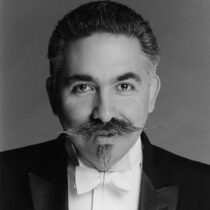
Eric Alatorre, bass
Bass Eric Alatorre is best known for his 28 seasons with professional vocal ensemble Chanticleer. His legendary career singing bass began in the last century, and he has sung with and mentored many new generations of singers during stops in 37 countries.
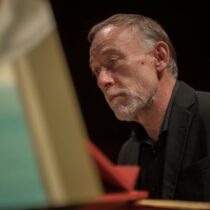
Alexander Weimann, fortepiano
Alexander Weimann is one of the most sought-after ensemble directors, soloists, and chamber music partners of his generation. After travelling the world with ensembles such as Tragicomedia, Cantus Cölln, the Freiburger Barockorchester, Gesualdo Consort and Tafelmusik, he now focuses on his activities as Music Director of the Pacific Baroque Orchestra in Vancouver, Music Director of the Seattle Baroque Orchestra, and regular guest conductor of ensembles including the Victoria Symphony, Symphony Nova Scotia, Arion Baroque Orchestra in Montreal and the Portland Baroque Orchestra.
Alex was born in Munich, where he studied the organ, church music, musicology (with a summa con laude thesis on Bach’s secco recitatives), theatre, mediæval Latin, and jazz piano, supported by a variety of federal scholarships. From 1990 to 1995, he taught music theory, improvisation, and Jazz at the Munich Musikhochschule. Since 1998, he has been giving master classes in harpsichord and historical performance practice at institutions such as Lunds University in Malmö, the Bremen Musikhochschule, the University of California (Berkeley), Dartmouth College (New Hampshire), McGill University, Université de Montréal, and Mount Allison (New Brunswick). He now teaches at the University of British Columbia and directs the Baroque Orchestra Mentorship Programme there. He has received several JUNO and GRAMMY Award nominations – most recently, for the album Nuit Blanches with the Pacific Baroque Orchestra and Karina Gauvin.


